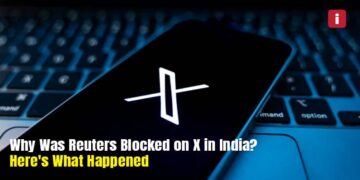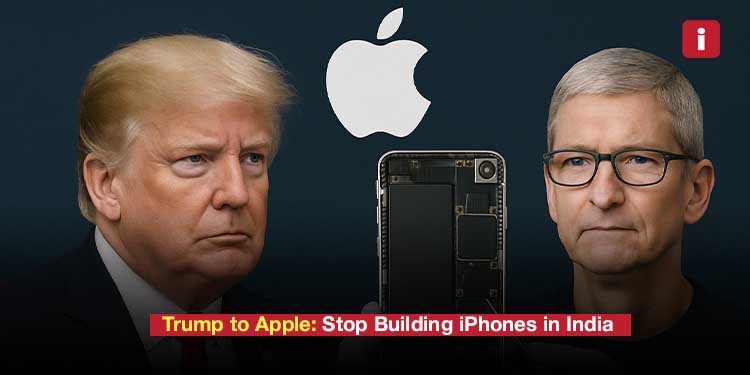Former U.S. President Donald Trump has once again taken aim at global trade dynamics—this time by publicly urging Apple to halt its growing iPhone production in India.
During a recent conversation in Qatar with Apple CEO Tim Cook, Trump reportedly expressed disapproval over Apple’s expanding manufacturing operations in India. “He is building all over India. I don’t want you building in India,” Trump told Cook, according to sources familiar with the meeting.
This comment comes as Apple ramps up its India presence to diversify its supply chain beyond China. In FY 2024 alone, Apple manufactured iPhones worth approximately $14 billion in India, with more than $10 billion of that output exported globally. The expansion has been bolstered by the Indian government’s Production Linked Incentive (PLI) scheme, which offers generous subsidies and tax benefits to companies setting up large-scale manufacturing.
Following his conversation with Cook, Trump claimed that Apple had agreed to “up their production in the United States” a move aligned with his long-standing “America First” stance that promotes domestic manufacturing over offshore expansion.
Trump’s statement has raised fresh questions about the sustainability of Apple’s “Make in India” ambitions. Industry observers warn that if Trump returns to office and reintroduces aggressive trade policies, it could trigger reciprocal tariffs. A potential 16.5% U.S. tariff on electronics imported from India, as some experts fear, would significantly undercut Apple’s cost advantage in the region.
“India has offered tariff reductions on American goods as part of ongoing trade discussions,” said a senior analyst from a U.S.-India trade group. “But Trump’s opposition and the threat of new tariffs could shift the equation quickly.”
India is positioning itself as the next big global hub for electronics manufacturing, with Apple as a key player. The company has created over 175,000 direct jobs in the country in the past four years, and its Indian supply chain includes major partners like Foxconn, Pegatron, and Wistron.
However, with increasing geopolitical pressure and Trump’s possible return to the White House in 2024, Apple may find itself walking a tightrope. Vietnam and other Southeast Asian nations are emerging as viable alternatives for manufacturing, offering political neutrality and favorable trade terms with the U.S.
While Cook has yet to respond publicly to Trump’s remarks, Apple’s next moves will be closely watched—not just by investors and supply chain strategists, but also by policymakers in both Washington and New Delhi.
One thing is certain: global tech supply chains are no longer just business decisions they’re geopolitical flashpoints.













































